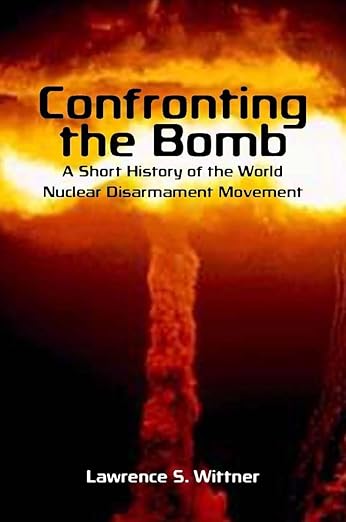Unable to back down, Israel and Hezbollah move closer to all-out war
BBC, 22 June 24, By Lucy Williamson, Reporting from the Israel-Lebanon border
Full-scale war between Israel and Hezbollah would be “a catastrophe”, the UN Secretary-General says. But to David Kamari, who lives under near-daily fire on the Israeli side of the border, it would be a solution.
Last month, a Hezbollah rocket fired from Lebanon landed in his front garden in the border town of Kiryat Shmona, cracking his house in several places and filling it with rubble.
He points out the gaping holes where shrapnel sliced through the walls, missing him by inches. And then to the hills above us, where Hezbollah-controlled territory begins.
“Every day, every night: bombs. [It’s a] problem,” he said. “And I was born here. If you live here one night, you go crazy.”
David is still living in his rubble-filled house, pieces of shrapnel entangled with the remains of his television set. Outside is the blackened relic of his car, burned by the fire that swept through his front yard after the rocket hit.
Most of the population of Kiryat Shmona was evacuated after the 7 October Hamas attacks, as Hezbollah rockets began raining down in support of their Palestinian ally.
David is one of the few who stayed. “I’ve lived here 71 years,” he said. “I won’t go. I was in the army, I’m not afraid.”
His solution? “War with Hezbollah; kill Hezbollah,” he says.
Israel has been striking back hard against Hezbollah, killing senior commanders and hitting targets further inside Lebanon.
Hezbollah has sent larger volleys of drones and missiles across the border this month, and threats on both sides have increased. Earlier this week, the group published drone footage of military installations and civilian infrastructure in the Israeli city of Haifa.
Tough talk has long been part of a mutual strategy of deterrence, with both sides seen as wary of all-out war.
But as the tit-for-tat conflict grinds on, and more than 60,000 Israelis remain evacuated from their homes in the north, there are signs that both Israel’s leaders and its citizens are prepared to support military options to push Hezbollah back from the border by force……………………………………………………………………………………..
As difficult as this border conflict is for people on both sides, a full-scale war would lift the crisis onto a different scale.
Some residents of Beirut are keeping suitcases packed and passports ready, in case of all-out conflict, and the Hezbollah leader, Hassan Nasrallah, said this week that nowhere in Israel would be spared.
Hezbollah is a well-armed, well-trained army, backed by Iran; Israel, a sophisticated military power with the US as an ally.
Full-scale war is likely to be devastating for both sides.
The UN Secretary-General, Antonio Guterres, said it would be a “catastrophe that goes […] beyond imagination”.
The problem for Israel is how to stop the rockets and get its people back to the abandoned northern areas of the country.
The problem for Hezbollah is how to stop the rockets when its ally, Hamas, is being pounded by Israeli forces in Gaza.
The longer that situation grinds on, the more the risks of a miscalculation increase, and the more Israel’s government is under pressure to resolve the situation.
The Hamas attacks on 7 October changed security calculations in Israel. Many of those with homes near the border – and some of those in positions of power – say the kind of agreement made with Hezbollah in the past is no longer enough.
Tom Perry lives in kibbutz Malkiya, right up against the Lebanese border fence. He was out drinking with friends when a Hezbollah rocket slammed through the front of his house earlier this month.
“I think the Secretary-General’s warning is right – [war] will be a catastrophe to the area,” he said.
“But unfortunately it looks like we have no other option. No agreement lasts forever, because they want death for us. We are doomed to wars forever, unless Israel can eliminate Hezbollah.”
Israel’s leaders lost all credibility after the 7 October attacks, he says, and don’t have a strategy to deliver peace.
“They need to quit – all of them. The biggest failure of our army and our country was 7 October, and they were our leaders. We don’t need these leaders.”
Demands for political change are likely to increase when Israel’s conflicts end.
Many believe Israel’s prime minister is playing for time: caught between growing demands for a ceasefire in Gaza, and growing support for a war in the north. https://www.bbc.com/news/articles/c4nn145p20qo
No comments yet.
-
Archives
- February 2026 (192)
- January 2026 (308)
- December 2025 (358)
- November 2025 (359)
- October 2025 (376)
- September 2025 (258)
- August 2025 (319)
- July 2025 (230)
- June 2025 (348)
- May 2025 (261)
- April 2025 (305)
- March 2025 (319)
-
Categories
- 1
- 1 NUCLEAR ISSUES
- business and costs
- climate change
- culture and arts
- ENERGY
- environment
- health
- history
- indigenous issues
- Legal
- marketing of nuclear
- media
- opposition to nuclear
- PERSONAL STORIES
- politics
- politics international
- Religion and ethics
- safety
- secrets,lies and civil liberties
- spinbuster
- technology
- Uranium
- wastes
- weapons and war
- Women
- 2 WORLD
- ACTION
- AFRICA
- Atrocities
- AUSTRALIA
- Christina's notes
- Christina's themes
- culture and arts
- Events
- Fuk 2022
- Fuk 2023
- Fukushima 2017
- Fukushima 2018
- fukushima 2019
- Fukushima 2020
- Fukushima 2021
- general
- global warming
- Humour (God we need it)
- Nuclear
- RARE EARTHS
- Reference
- resources – print
- Resources -audiovicual
- Weekly Newsletter
- World
- World Nuclear
- YouTube
-
RSS
Entries RSS
Comments RSS

Leave a comment